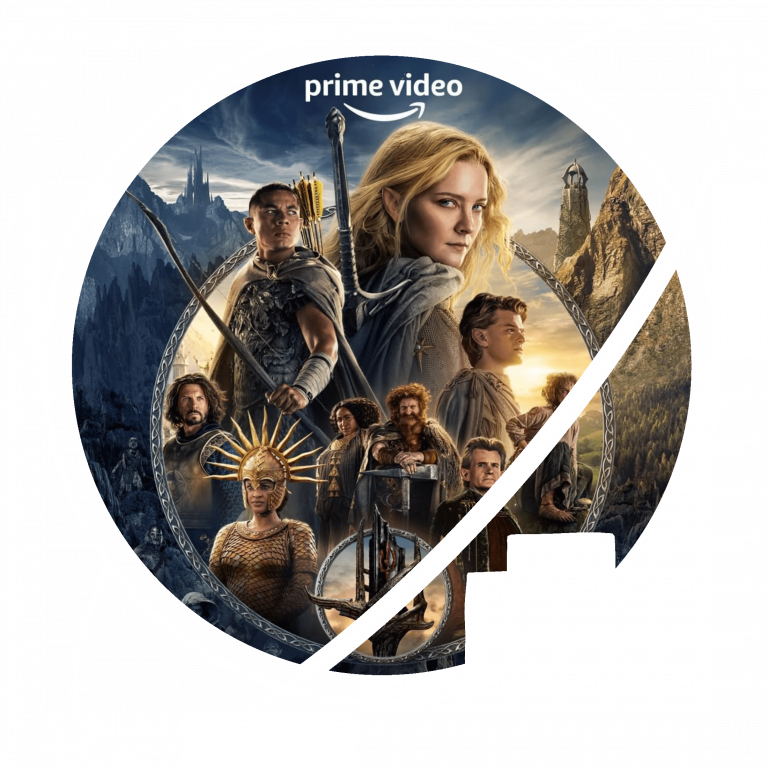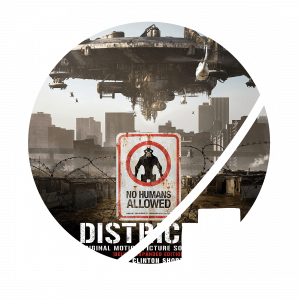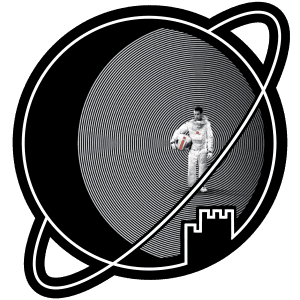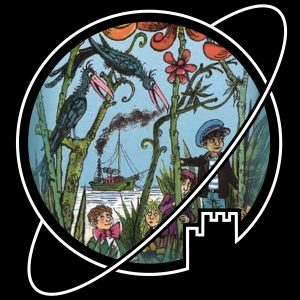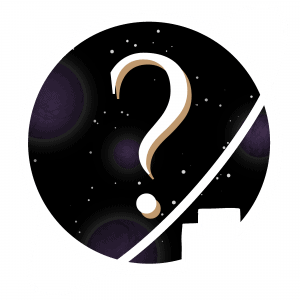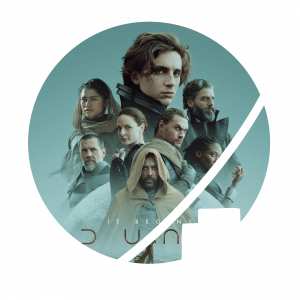- Television series created by Patrick McKay and John D. Payne for Amazon Prime
- Based on the Lord of the Rings by J.R.R. Tolkien
- Released in 2022
- Starring Morfydd Clark, Ismael Cruz Córdova, Charlie Vickers, Robert Aramayo, Nazanin Boniadi, Daniel Weyman, Owain Arthur and others
- 8 Episodes
Amazon Prime’s long-expected take on Tolkien’s Lord of the Rings based on the Appendices to the Return of the King chronicles the lives of several younger versions of characters we know from the Lord of the Rings and their attempts to prevent Sauron’s rise to power: Galadriel and her hunt for the enemy, Elrond and his diplomatic struggles torn between loyalty and friendship, Elendil and his role at court in a kingdom where every string is tensed to the breaking point.

So, we’ve finally come to it – our review of The Rings of Power. I’ll admit I’ve flip-flopped a bit: initially, based on the trailers, I was afraid it was going to be a trainwreck. So when I actually watched the first episode and it was halfway decent, that was a big relief. But as the season progressed, there were more and more things that rubbed me the wrong way. There are elements to it that save it from a bottom-tier rating, but overall, the poor writing choices land it in decidedly ‘meh’ territory. I feel the half star on top of the two is generous (perhaps earned only through being a Tolkien IP). Let’s dig in!
To start with the positives, I think that the show’s visuals are mostly fantastic. The CGI establishing shots of places like Númenor, Khazad-Dûm and Lindon are everything you could want from them. Similarly, all of the landscapes and most of the costumes, weapons, ships, etc. are great, with a couple of misses here and there. I have no qualms with the casting or acting (even if a lot of the excessively flowery dialogue must be an absolute struggle to get through as an actor). I recognise that the story departs from canon in places but I don’t mind that in and of itself – as long as the choices make some sense.
I feel the core of the problem, though, is the writing. My feelings are probably best summarised in two main issues: first, The Rings of Power prioritises scenes, moments, and disparate story elements over the overall narrative; and second, the series keeps stumbling on scale.
The Rings of Power has the need to constantly feel epic. Main characters in a fight? Epic. Supporting characters running away from a handful of orcs? Epic. Ship sailing? Epic. Somebody hands someone a sword? Epic. The result is that by the end of it, nothing feels epic because everything feels epic. And because the series spends so much time on these epic moments, the actual narrative is forced into the background. This is made worse because many of the epic moments are ‘unearned’ – they are not properly set up by narrative that tells us the stakes and makes us care for the characters at risk. Sometimes, the ‘epicness’ is even derived from knowledge the viewer (hopefully) has on the basis of watching the Peter Jackson trilogy or reading the books. As a result, a lot of ‘moments’ and ‘reveals’ that are played up cinematically make no sense within the context of the Rings of Power alone.
Of course, there are also some cool subtle references like similar cinematic shots, a recognisable sword in the background or a throwaway line that sounds familiar. But unfortunately, more often than not the references feel very much forced or overdone, as if The Rings of Power thinks reflecting The Lord of the Rings is more important than telling a story of its own. Perhaps the inclusion of the Harfoot (proto-Hobbit) plotline is a good example: the line isn’t bad, but why do we need to have Hobbits at all in this story on (supposedly?) the fall of Numenor? The plotline doesn’t contribute anything to the main story except slowing it down. It feels like they were shoehorned in because people expect Hobbits in a Tolkien IP. The same goes for the story of the Stranger intertwined with the Harfoots’ and to some extent, even the presence of the Dwarves. It feels like the writers wanted to include everything in this one season to reel in fans of all races. The result is that while there are a lot of cool scenes and recognisable moments, the story as a whole feels like loose sand.
This is part of the ‘scale’ problem I mentioned: it just feels like the writers bit off more than they could chew, or at least, more than they could fit in a single season. There are just too many plotlines going on. Consequently, few of them move forward very far – and still it feels like some moved too fast or without proper groundwork. This is especially apparent in the final episode, where a lot has to happen all at once. In the end, the first season feels like a lot of set up for things to come (and the writers are already moving the goalposts in that direction). But since the next season’s apparently a couple of years away, the anticipation will probably have ebbed away – and I’m hardly interested in rewatching what we already got.
At the same time that the writers tried include way too much in the scope of this one season, the scale of some of what they did show seemed way off – especially the Southlands. It felt like the entire region was reduced to a single village of ramshackle huts. And how did those riders happen to arrive in that one particular village right on time – is Middle-Earth really that small? And how on earth are 100 horses and 100 men supposed to fit on that ship? And while the establishing shot of Khazad-Dum was great, why do we spend all of the rest of our time in small tunnels? Are those six trees really the orchard the Harfoots were travelling to for the entire season? The list goes on.
In conclusion, I think I ought to come back to my first impression: The Rings of Power has hits and misses, but for me in the end, the misses outweigh the hits. I won’t say that your time watching this will be wasted, but there are a lot of other things I would recommend first. I’m thoroughly… whelmed.

I have to admit I wasn’t as excited about this show as some of my fellow curators. I love the Lord of the Rings, but experience has taught me that it’s usually bad news when a beloved intellectual property gets added on to. I was still optimistic, though.
I have to admit I quite enjoyed the show at first. It wasn’t terribly exciting, but we watched it together every week, so I had the encyclopedic Tolkien knowledge of both Jop and Peter on my side. On my own, I would have understood very few of the references made to the original trilogy. The establishing shots were very pretty, the elves were silky, and the dwarves were fun.
It wasn’t until I missed two of our watch parties and had to catch up on my own that the cracks were really beginning to show. I found myself struggling to focus and frankly unable to care about the show in the way that I cared when we watched together. I realised what I had actually enjoyed about the show had been making sassy comments and talking through “important” dialogue.
Look, the show does have a couple of things going for it. The scenery looks great, the actors do their best with what they’re given, and the relationship between Elrond and Durin was just extremely charming.
However, the pacing was off and the writing was clunky and uninspiring (though trying desperately to be deep). The story felt forced and the twist at the end left me cold. It’s definitely the kind of show I’d recommend only to those who’ve heard about it and don’t want to miss out on the hype. If you haven’t seen it yet, that is.

It seems we curators have finally found something to be of one mind on: the fact that The Rings of Power is neither bad nor mind-blowingly good.
As the others also mention, we watched the first season mostly together, and that greatly improved the experience. However, even without the company of my dear friends, there were elements of the series I enjoyed. I loved the visuals, the great shots of nature landscapes and Middle-Earth’s grand cultures. I liked the initial characterization of the main characters and some of the worldbuilding that the writers seemed to set up to fill in the blanks of Tolkien’s extensive mythology. I also respected the (underdeveloped) attempt at a much needed critique on the nature of evil, something that is missing in most of Tolkien’s works and adaptions thereof. And, last but not least, I absolutely loved the dynamic between Elrond (despite his haircut) and Durin. Every scene between these two was a pleasure to behold.
My 2,5 stars for this series are, broadly speaking, a result of the quality of the writing. Ironically, there were few moments where I thought the writing was actually bad. There were many moments, however, where I felt the writing was uninspired. Safe but without any zest.
I believe the overarching tension arc the writers were aiming for – the question of who is Sauron and where is he? – would’ve worked better if they had put their focus on the Eregion politics first. The inclusion of Númenor, though I loved the visuals and Elendil’s character, had little added value, in my opninion. Additionally, the storylines that were more focused on the goings-on of the characters – such as the Harfoots and the Southlands – could have used a little more thought, so that the eventual stakes felt more… emotional. Most characters hadn’t really earned my affection as much as the story intended.
On the whole, my aftertaste of The Rings of Power has a little tang of disappointment. Did the series work a fantasy series? I believe so. Did it have the soul of Tolkien’s Middle Earth? Not quite…

The copious amounts of Lord of the Rings references in this show made me feel very nostalgic, and because of that I quite enjoyed it at first. However, as the show progressed it became clear that the story itself just was not that good. The small moments of recognition when a familiar name or phrase was used were fun, but for me those moments in themselves were not enough to make up for all the areas where the show fell short. I just did not feel all that invested in any of the storylines or the characters, and there were so many conversations that were clearly meant to sound very profound, but actually just consisted of two people exchanging meaningless platitudes.
All this is not to say that I did not enjoy anything about it: I really liked the relationship between Elrond and Durin (despite the nonsensical plotline), and the visuals for Lindon, Khazad-Dûm and Númenor where fantastic. Every week, all of us curators got together to watch the new episode, and I had a great time watching it together with them and making fun of the more ridiculous moments. I will happily watch the next season as well, but even so I do wish that the show’s creators had been able to sell me on the story on its own merit.






